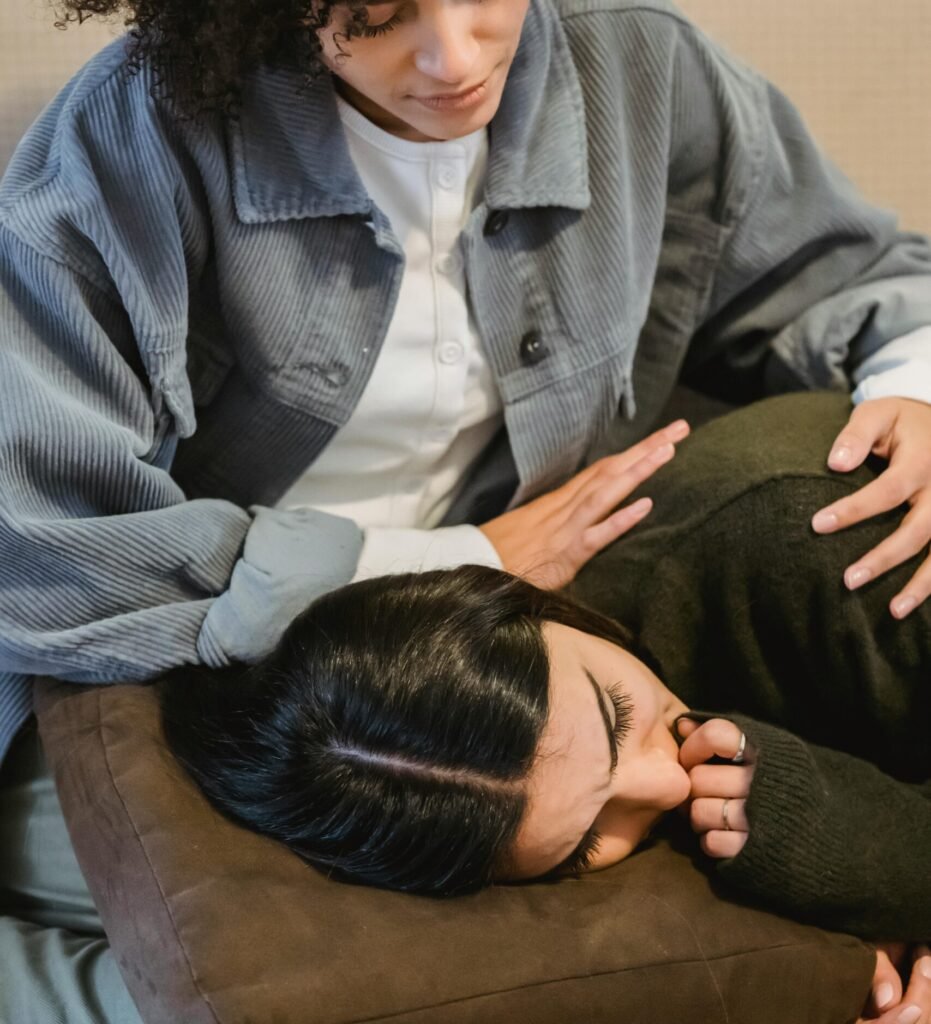
According to the National Institute of Mental Health, over 21 million adults in the United States, about 8.3% of all U.S. adults, experienced at least one major depressive episode in the past year. Globally, depression affects over 280 million people, making it one of the leading causes of disability worldwide. It’s not just adults, about 4.1 million adolescents (ages 12–17) in the U.S. also live with depression, and suicide remains one of the top causes of death among youth ages 15–24.
But behind these numbers are real people. Families. Mothers. Fathers. Children.
Eight years into our marriage, my husband suffered a workplace injury. What we thought was temporary quickly turned into a permanent disability. After two rotator cuff surgeries and countless rounds of physical therapy, it became clear, he would never be able to work again. His arms, once strong and capable, never healed properly. The physical pain was relentless, but what hurt more was the emotional toll.
My husband, once the proud provider, was now home every day, grappling with a loss of purpose. He slowly withdrew. First from friends, then from me, and then even from our children. He started smoking again. Then came the drinking. Online shopping followed. They were all ways to cope, temporary escapes from a reality he couldn’t face.
As an Asian person, depression wasn’t something we talked about growing up. If you couldn’t see it, it didn’t exist. I didn’t understand what was happening to him. I just knew I had to keep the family going. I worked harder. The children needed me. Bills had to be paid. Food had to be on the table. I didn’t ignore him, I just didn’t have anything left in me.
Then one day, everything changed.
He attempted suicide.
Suddenly, the world I was trying so hard to hold together shattered. Thank God for watching over my husband and letting him survive. Bless the doctors who saved his life.
He spent two months in a rehabilitation center. During that time, I finally slowed down enough to learn. To understand. To listen. Depression was real. It wasn’t a weakness. It wasn’t laziness. It was a medical condition, an illness that impacts the brain, the emotions, and the body.
And in the midst of it all, I began to see that I too was depressed. Carrying the weight of everything for so long had started to break me, too.
What I Learned About Depression
Depression isn’t sadness – it’s an illness.
And like any illness, it needs support, treatment, and time. You wouldn’t ignore a broken leg. You wouldn’t yell at someone with diabetes to “snap out of it.” Depression is no different.

How to Recognize Depression in Yourself or Others
Here are some signs to watch for:
Loss of interest in activities once enjoyed
Persistent sadness or emptiness
Withdrawal from family or friends
Changes in eating or sleeping habits
Fatigue or low energy
Feelings of worthlessness or hopelessness
Substance abuse or addictive behaviors
Suicidal thoughts or talk

What You Can Do to Help a Loved One with Depression
Don’t judge or shame.
Depression is not a character flaw. Don’t say things like “just cheer up” or “get over it.”Be present.
Sometimes, just sitting with someone in silence means more than any advice you could give.Encourage professional help.
A counselor, therapist, or psychiatrist can help in ways you can’t. Help them find the support they need.Check in regularly.
Even a quick text or a five-minute talk can remind them they’re not alone.Take care of yourself.
Supporting someone with depression is heavy. You need support too—through counseling, friends, or faith.

If You’re Struggling with Depression
Please know this: You are not alone.
Depression lies. It tells you you’re hopeless and unloved. But that’s not true.
Here are a few first steps:
Talk to someone. Friend, pastor, counselor—just don’t stay silent.
Get professional help. Therapy and sometimes medication can change your life.
Create small routines. A walk outside. A nourishing meal. A daily journal.
Set tiny goals. You don’t have to fix everything today—just take one step.
Our Journey Continues
Today, we are still healing. There are good days and hard days. But now, we face them together, with understanding and compassion. My husband has a new purpose. I have a new appreciation for mental health. And we, as a family, are learning how to thrive, even in the face of pain.
If you or someone you love is struggling, don’t wait for a breaking point.
Learn about depression. Take it seriously. Be kind. Be present. Speak up.
You never know – your support could save someone’s life.
Join Our Tribe of Dreamers, Doers & Planners!
Planning tips, goal-setting inspiration, and simple strategies to help you create a life you love – delivered straight to your inbox.



